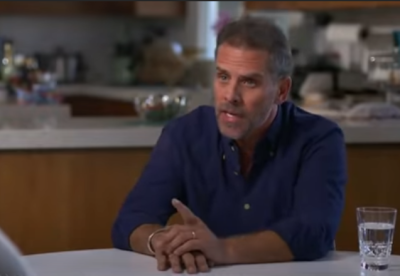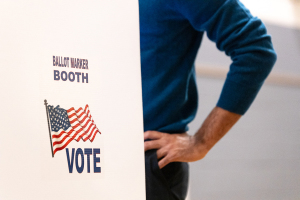5 things to know about the first 2 installments of the 'Twitter Files'

1. Twitter officials did not believe the "Hacked Materials" policy was a credible reason to censor posts about the Hunter Biden laptop story.
In the weeks leading up to the 2020 presidential election, 51 former intelligence officials signed a letter characterizing the Hunter Biden emails published by The New York Post as having "all the classic earmarks of a Russian information operation."
One of the "Twitter Files" documents includes an email attributing the lockout of then-White House Press Secretary Kayleigh McEnany's account for tweeting about the Hunter Biden laptop story to a violation of the company's "Hacked Materials policy."
However, additional documents suggest that many within Twitter did not view the policy as a sufficient justification for locking McEnany out of her account.
Taibbi cited testimony from one former Twitter employee who insisted that "They just freelanced it," adding, "Hacking was the excuse, but within a few hours, pretty much everyone realized that wasn't going to hold." The employee maintained that although they saw the rationale for locking McEnany out of her account as flimsy, "no one had the guts to reverse it."
A message obtained by Taibbi, authored by Twitter communications official Trenton Kennedy, insisted that "the policy basis for marking this as unsafe" did not hold up. Kennedy suggested that "the best explainability argument for this externally would be that we're waiting to understand if this story is the result of hacked materials." He predicted that "we'll face hard questions on this if we don't have some kind of solid reasoning for marking the link unsafe."
https://t.co/j4EeXEAw6F can see the confusion in the following lengthy exchange, which ends up including Gadde and former Trust and safety chief Yoel Roth. Comms official Trenton Kennedy writes, “I'm struggling to understand the policy basis for marking this as unsafe”: pic.twitter.com/w1wBMlG33U
— Matt Taibbi (@mtaibbi) December 3, 2022
Additional action taken by Twitter to suppress the Hunter Biden laptop story included "removing links and posting warnings that it may be 'unsafe,'" Taibbi explained.
Yoel Roth, identified by Taibbi as Twitter's "former Trust and safety chief," elaborated on the contents of the label Twitter intended to attach to all posts related to the Hunter Biden laptop story.
"When you click the link, you'll see the generic unsafe URL message (references spam, malware, and violations of the Twitter Rules)," Roth stated.
Another Twitter official included in the exchange called for a communications strategy clarifying that "we're proactively but cautiously interpreting this through the lens of our hacked materials policy and allowing the link with a warning and a significant reduction of speed."
Roth also suggested concerns stem from the feeling that social media companies did not do enough to prevent the publication of leaked emails reflecting negatively on Democratic presidential nominee Hillary Clinton ahead of the 2016 presidential election.
"The policy basis is hacked materials — though, as discussed, this is an emerging situation where the facts remain unclear. Given the SEVERE risks here and lessons of 2016, we're erring on the side of including a warning and preventing this content from being amplified," he added.
Ryan Foley is a reporter for The Christian Post. He can be reached at: ryan.foley@christianpost.com




























